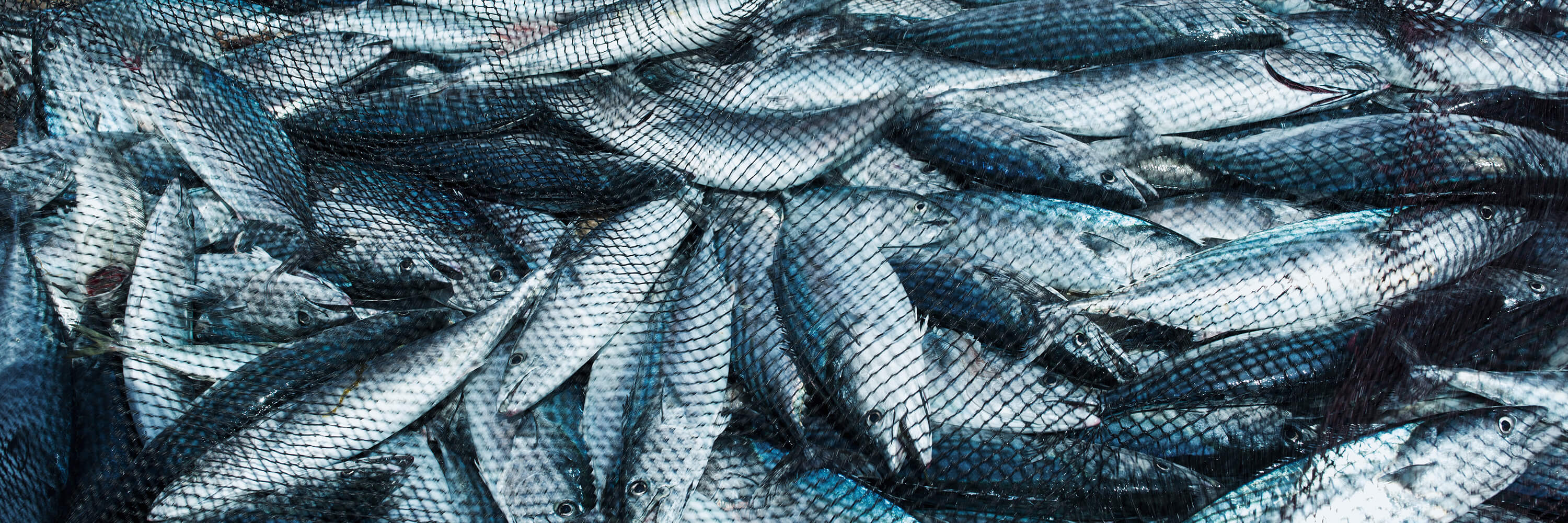
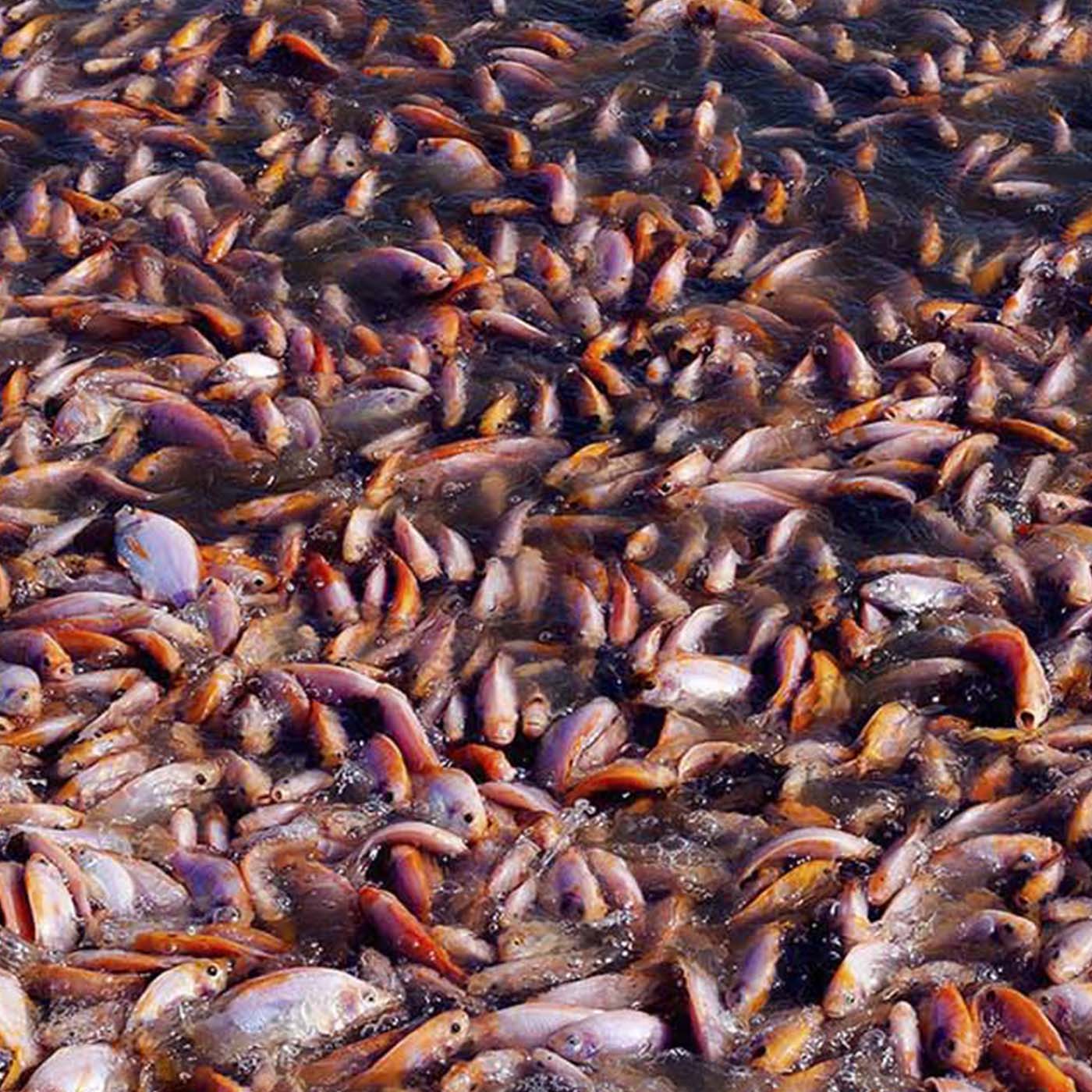
4 ways the fishing industry is destroying the planet
With Netflix documentaries like Seaspiracy exploding in popularity, it’s no surprise that consumers are now questioning the environmental impact of the most powerful industries on the planet.
Just as livestock farming has caused deforestation and Amazon rainforest fires, both commercial fishing and aquafarming have devastated our oceans and contributed to climate change.
And just as the livestock farming industry aims to hide its environmental impact from consumers, the fishing industry is counting on buyers not knowing the truth.
So, what exactly is the industry hiding? We’re so glad you asked…
Aquafarms, which are essentially farms for fish, confine these animals to tightly packed spaces either inland or in fenced-off cages in the ocean. Fish spend their entire lives (up to two years) in cesspools filled with feces, parasites, antibiotics, and pesticides.
These toxic materials spread to surrounding areas, contaminating our oceans and killing other marine life. A study called Fish, Money, and Science in Puget Sound found that a 2-acre fish farm can produce as much waste as a town of 10,000 people.
Not only does aquafarming create massive amounts of waste, but it also contributes to more industrial fishing.
Many of the fish raised on these farms are predators, meaning they need to eat smaller fish to live. Billions of wild fish are caught in order to feed these farmed predators. In fact, it takes five pounds of wild fish to produce just one pound of farmed salmon.
In a practice called “bottom trawling,” commercial fishing boats drag giant nets across the ocean floor to capture all the fish in their path.
Animal Equality investigators exposed the brutality and destruction caused by trawling in the Mediterranean Sea, showing millions of fish being hoisted onto a boat where they squirmed and gasped for air. The majority were gutted alive or put into a freezer to suffer a slow and painful death.
Longline fishing is a technique in which boats drag long fishing lines through the water with several hooks on them. These fishing lines are up to 50 feet long and catch and kill unintended species—such as dolphins, sea birds, turtles, whales, and non-target fish—en masse. These “bycatch” animals are then thrown overboard.
Meanwhile, longlines are often lost in the ocean and never retrieved, killing animals long after the boats have left.
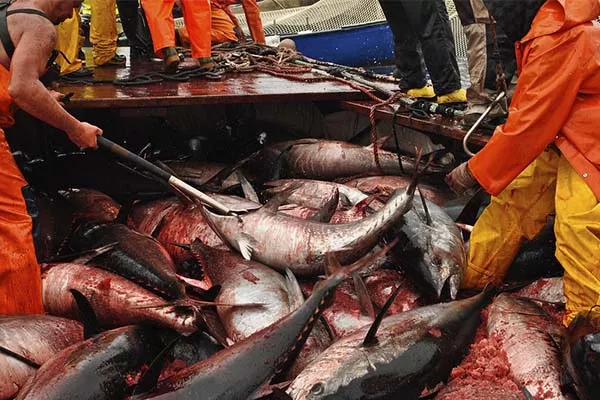
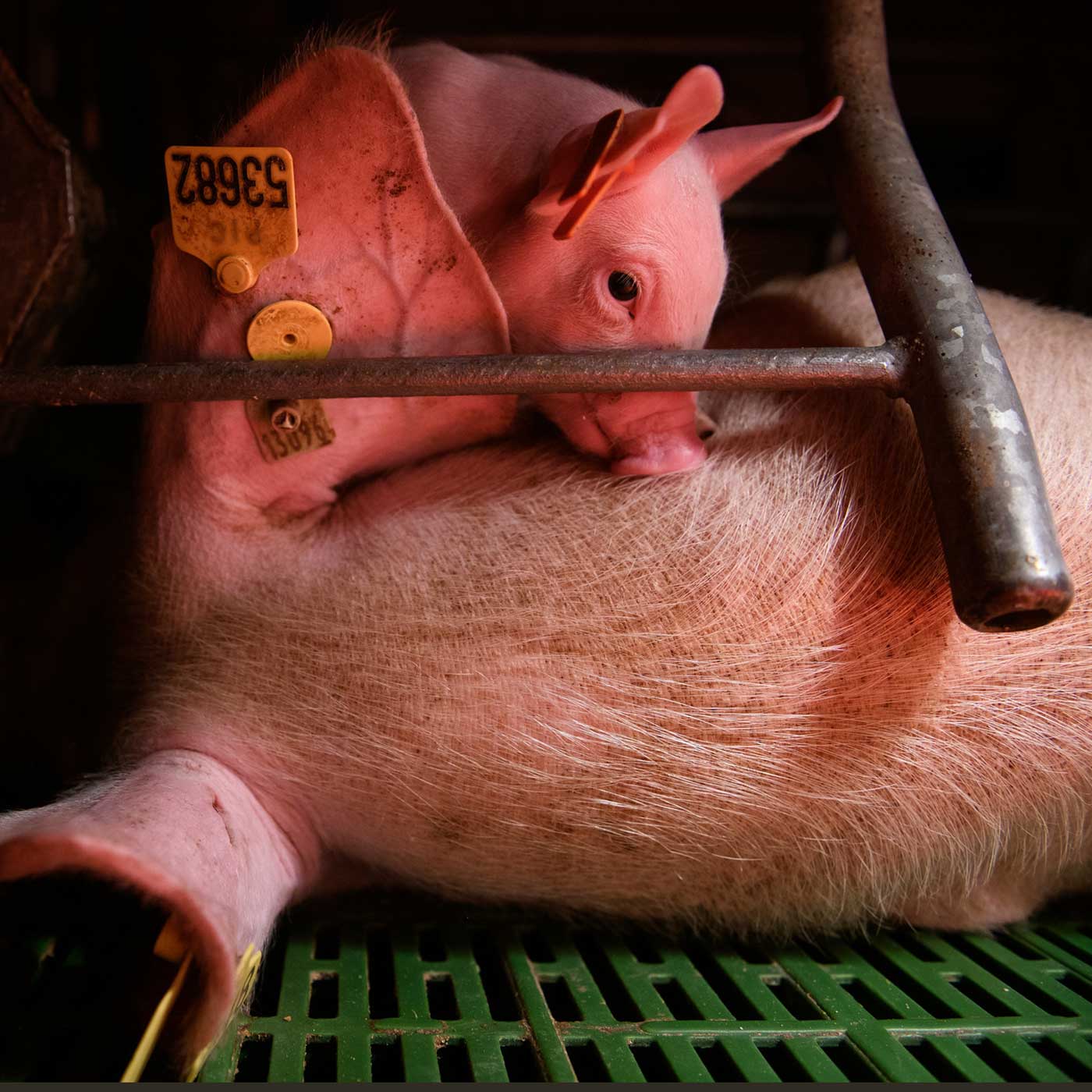
WILL YOU STEP UP FOR HER?
Her mother’s life was spent in a cage. She will suffer the same fate. But you can change this for millions of animals, currently trapped in factory farms.
Your support makes our investigations, campaigns, and legal work possible .
Only $25/month impacts 1,300 animals in a year.
Of course, all of these practices take place while the industry markets fish as a “sustainable” food choice. Fortunately, consumers around the world are no longer buying into this ploy.
Millions of people are waking up to the destruction caused by fishing, livestock farming, and other animal agriculture industries. Whether it is for our planet, their health, or – most importantly – the wellbeing of sentient animals, thousands more have joined the Love Veg movement.
With the help of Love Veg, you can discover the hidden benefits of replacing meat, dairy, eggs, and fish with delicious, satisfying, and truly sustainable plant-based alternatives.
Together, we can defend both the planet and its inhabitants.
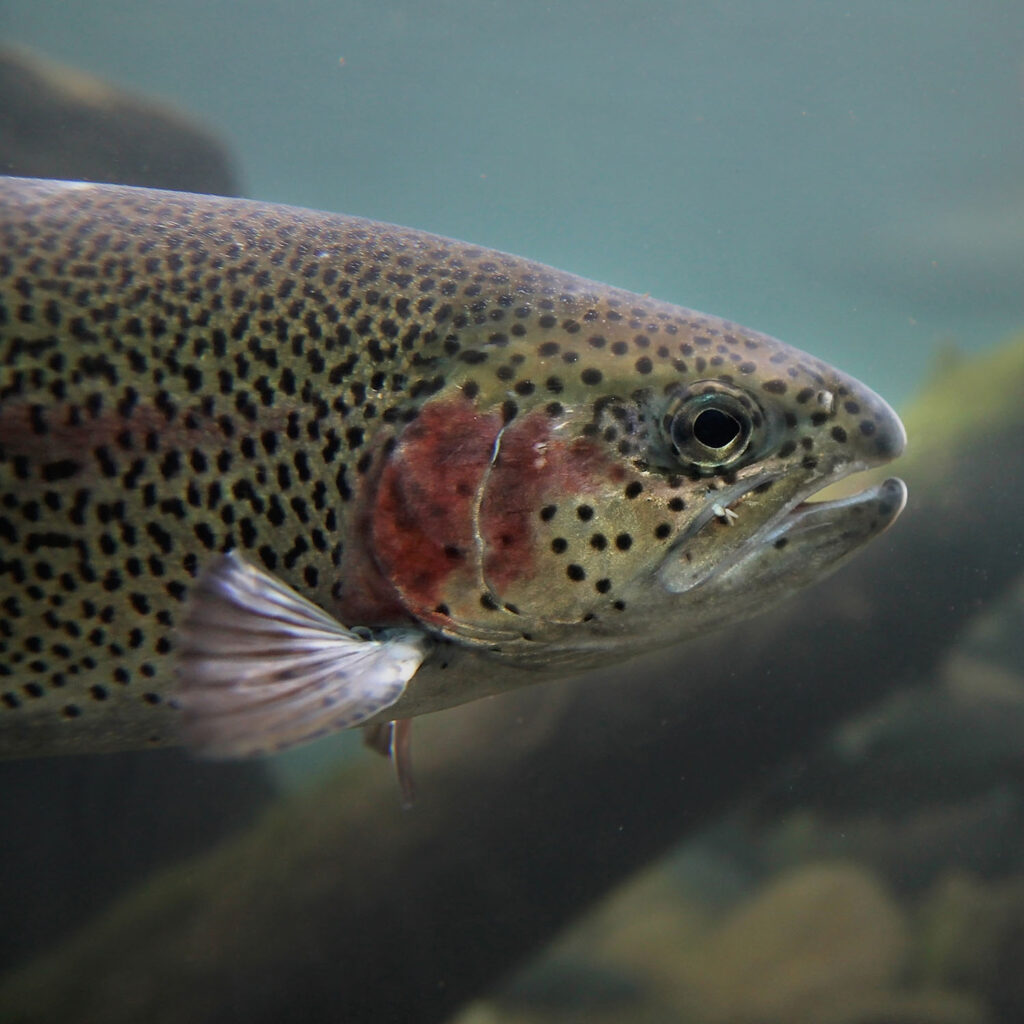
DEFEND FISH FROM ABUSE
Scientists confirm that fish have rich emotional lives and the capacity to feel.
Protect these sensitive beings by choosing plant‑based alternatives to animal food products.

